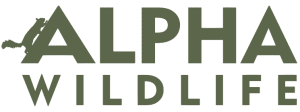Preventing Wildlife Damage in Your Home
Keeping wildlife away from your home is essential for protecting your property from damage and potential health risks. Wildlife, though a natural and integral part of our ecosystem, can cause significant issues when they encroach on human habitats. From gnawing through wires to contaminating spaces with droppings, the impact of unwanted wildlife can be extensive and costly. Here, we provide a detailed guide on preventing wildlife damage to ensure your home remains safe and secure.
Maintain Your Property
Regular property maintenance is crucial in preventing wildlife intrusion. By keeping your yard clean and orderly, you reduce the likelihood of animals seeking refuge in your space. This includes:
- Trimming Trees and Shrubs: Overgrown branches and dense foliage provide excellent cover for animals. Trim these regularly to discourage wildlife from settling in.
- Lawn Care: Keep your lawn mowed and free from debris. Long grass and accumulated leaves are inviting to small animals and insects.
- Remove Dead Foliage: Clear out any dead plants or foliage that could serve as hiding spots or nesting materials for critters.
Secure Animal Enclosures
If you have pets or livestock, their enclosures should be secure enough to prevent wildlife from entering. Elevate enclosures and ensure they are far from accessible rooftops or windows, as animals like raccoons and squirrels are adept climbers. Use sturdy materials that cannot be easily chewed through or damaged.
Use Wildlife Trapping Devices
Installing wildlife trapping devices in attics or other high-risk areas can be an effective way to manage wildlife intrusions. These devices capture nuisance animals humanely, allowing for safe relocation. Ensure that these traps are regularly checked and maintained to avoid harm to the trapped animals.
Bird Feeder Placement
Bird feeders can attract a variety of wildlife, not just birds. To prevent other animals from raiding your bird feeders:
- Elevate Feeders: Place bird feeders high off the ground and away from trees or structures that animals can climb.
- Use Baffles: Install baffles above and below feeders to deter squirrels and other animals from accessing the food.
Trim Back Shrubs and Trees
Keeping shrubs and trees well-trimmed prevents them from providing cover or access points for wildlife. Overgrown vegetation near your home can serve as a bridge for animals to enter attics or windows.
Secure Garbage
Garbage is a significant attractant for wildlife. To minimize this:
- Use Animal-Proof Cans: Invest in sturdy, animal-proof garbage cans.
- Store Cans Properly: Keep garbage cans in a secure area, such as a shed or garage, until collection day.
- Avoid Loose Trash: Ensure all trash is bagged properly and bins are sealed tightly.
Seal Entry Points
Inspect your home for potential entry points and seal them to prevent wildlife from entering. This includes:
- Caulking Cracks and Gaps: Seal any cracks or gaps around doors, windows, and foundations.
- Install Chimney Caps: Use chimney caps to prevent animals from entering through the chimney.
- Repair Holes: Fix any holes in walls, roofs, or screens immediately.
Monitor Wildlife Activity
Regularly monitoring wildlife activity around your property can help you identify and address issues early. If you notice signs of wildlife, such as droppings, nests, or damage, take immediate action to mitigate the problem. Professional wildlife removal services can assess and handle severe infestations.
Professional Help for Wildlife Removal
Sometimes, despite your best efforts, wildlife can still invade your home. In such cases, professional wildlife removal services are essential. Experts can safely and effectively remove animals and implement measures to prevent future issues.
Areas Where We Help Preventing Wildlife Damage
Alpha Wildlife services six key markets, providing specialized wildlife control and removal solutions tailored to the unique needs of each region:
- Nashville, TN: A bustling urban area where wildlife often intrudes into residential and commercial spaces, posing various challenges.
- Memphis, TN: Known for its diverse wildlife, requiring comprehensive management to protect properties from animals like raccoons, squirrels, and bats.
- Knoxville, TN: With its proximity to natural habitats, Knoxville faces frequent wildlife issues, making professional control services essential.
- Chattanooga, TN: This area faces unique wildlife challenges due to its geographic location, necessitating specialized prevention and removal strategies.
- Charleston, SC: A coastal city where wildlife encounters are common, particularly with seabirds and small mammals.
- Columbia, SC: The diverse ecosystems around Columbia result in frequent wildlife interactions, requiring robust control measures.
Preventing Wildlife Damage FAQs
How can I prevent raccoons from entering my attic?
Seal all potential entry points, install chimney caps, and keep tree branches trimmed away from the roof.
What should I do if I find a wild animal in my home?
Contact a professional wildlife removal service to safely and humanely handle the situation.
Can bird feeders attract unwanted wildlife?
Yes, bird feeders can attract squirrels, raccoons, and other animals. Use baffles and place feeders strategically to deter these pests.
How do I keep squirrels away from my bird feeders?
Elevate feeders and install baffles to prevent squirrels from accessing the food.
What are the benefits of professional wildlife removal services?
Professionals can safely remove wildlife, prevent future invasions, and mitigate damage to your property.
Need Help Preventing Wildlife Damage?
Preventing wildlife damage requires proactive measures and regular maintenance. By keeping your property well-maintained, securing potential entry points, and utilizing professional services when necessary, you can protect your home from the damaging effects of unwanted wildlife. These strategies not only safeguard your property but also promote a healthier living environment.
